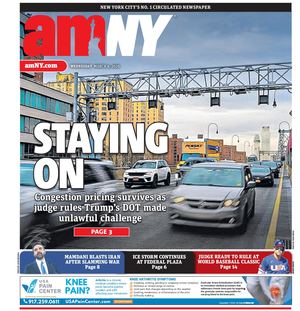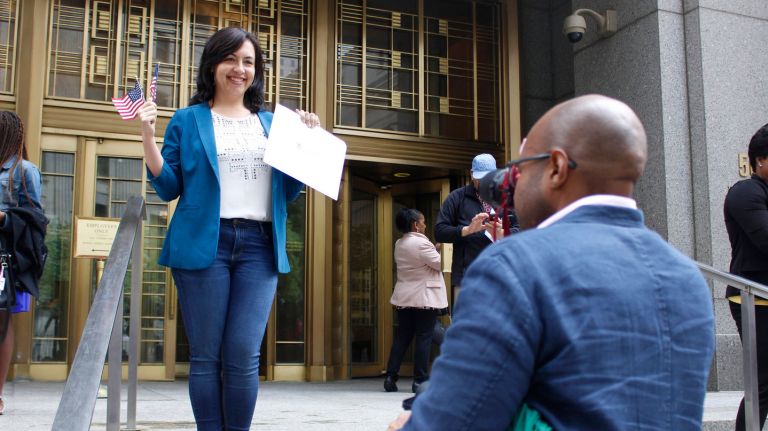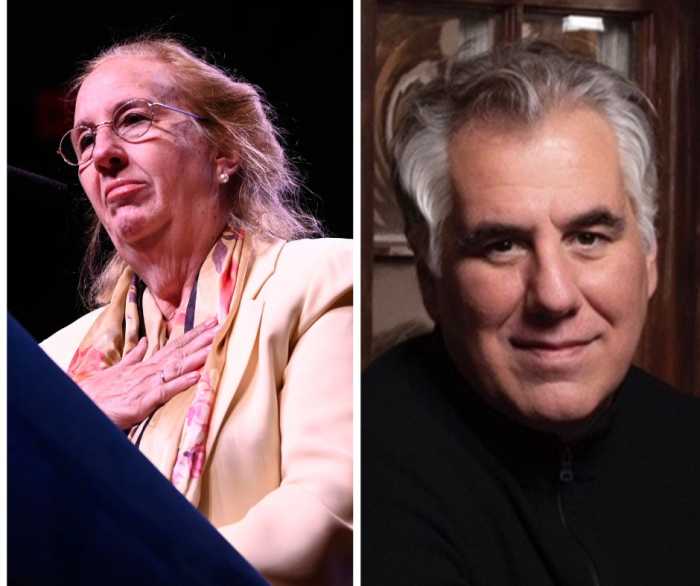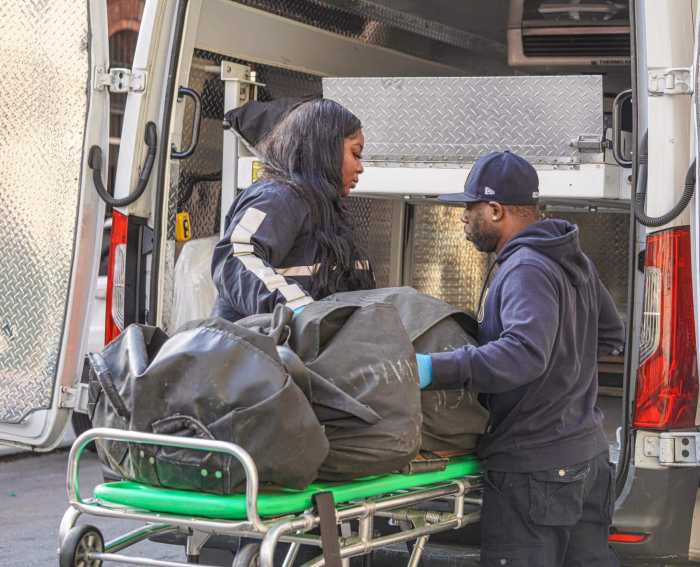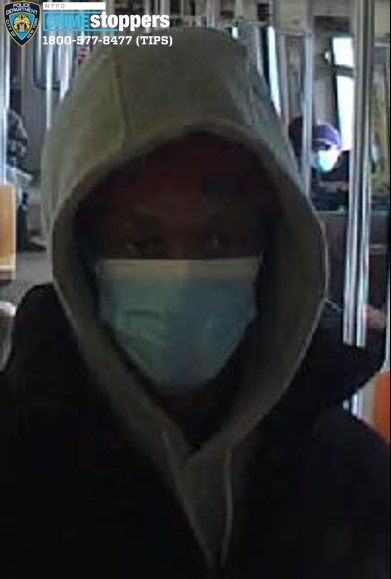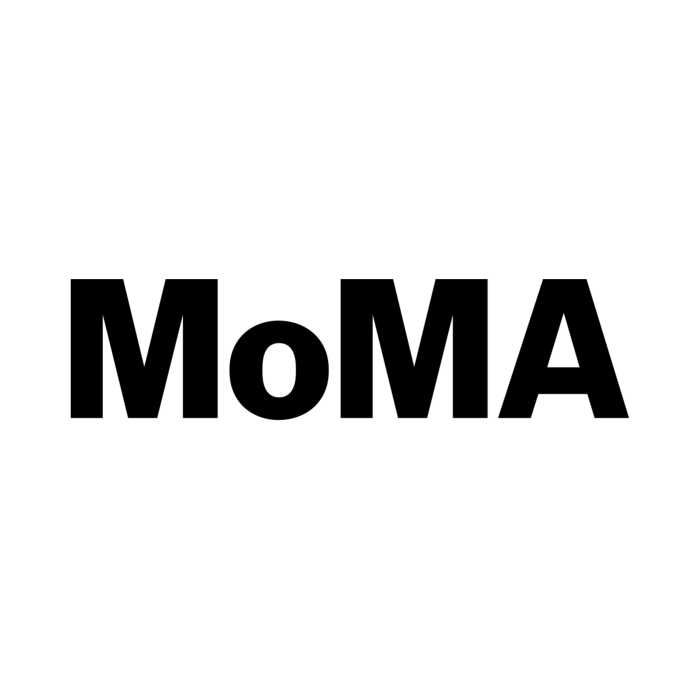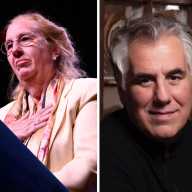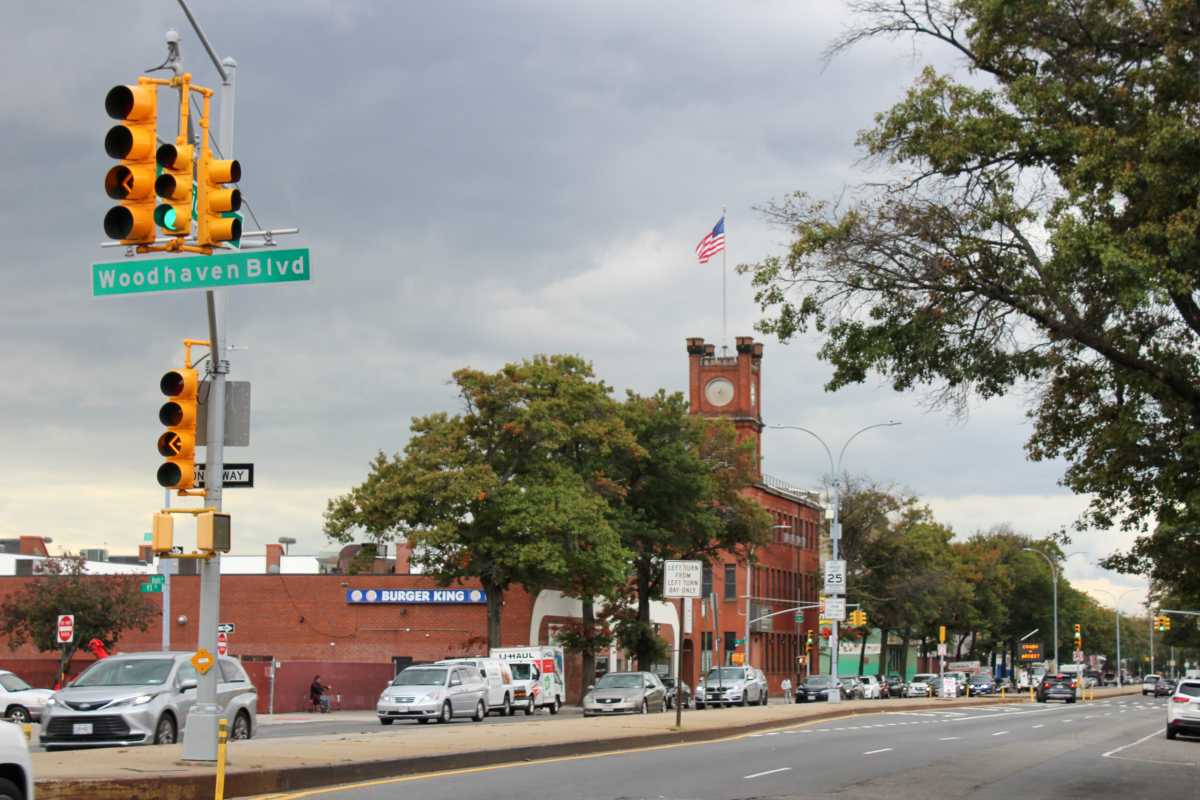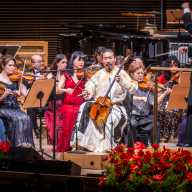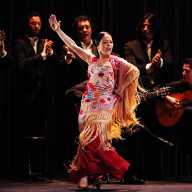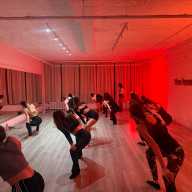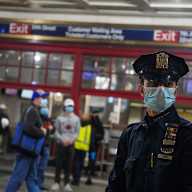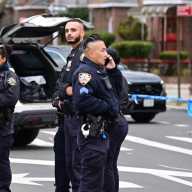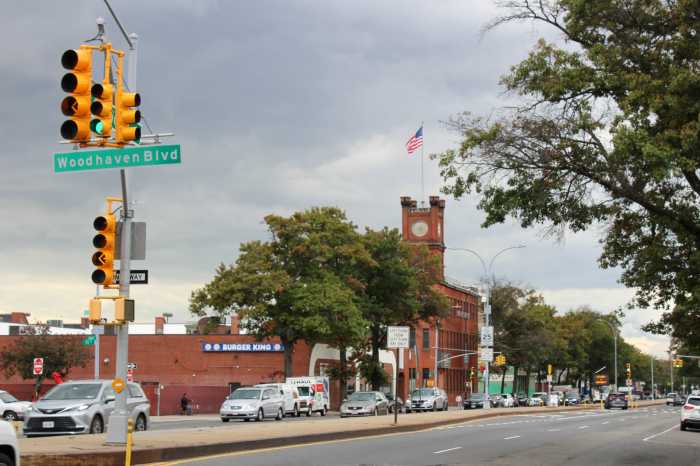
“Congratulations, my fellow Americans.”
As U.S. District Judge Jesse M. Furman’s voice rang out from behind the bench, hundreds of newly naturalized Americans burst into applause. Amid cheers, tears and hugs with loved ones, 162 individuals from 47 countries celebrated on a recent Friday, forgoing their native citizenship, in favor of an American one.
As they solemnly touched their hands to their chests and recited the Oath of Allegiance to the United States of America, a kind of reverence filled the air inside the courtroom. Citizens of all ethnicities vowed to protect the United States Constitution against domestic and foreign enemies, and promised to take up arms on behalf of the country should the government require it, as is the custom every Friday morning at Daniel Patrick Moynihan United States Courthouse at 500 Pearl St. in lower Manhattan.
‘They give everybody a chance’
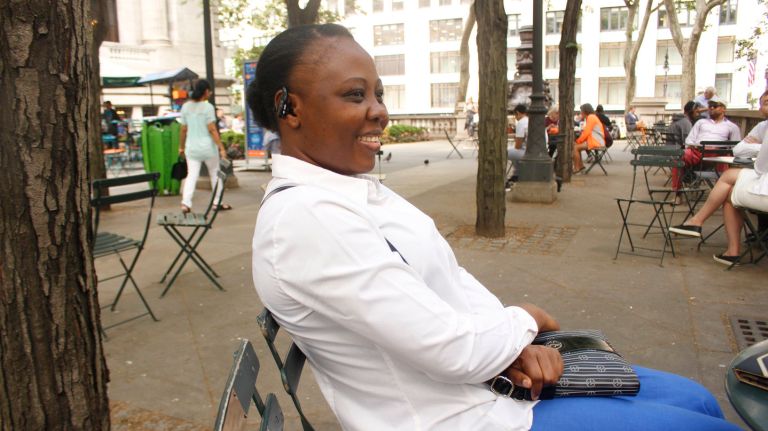
One such new, determined American was Frances Mbaidedji, who sat in the back of the room alone, clutching her paperwork. A social worker from Chad Republic, Mbaidedji had arrived in Dallas, Texas, in 2007 to improve her English language skills on a two-year student visa. Two months in, a civil war escalated in her home country, endangering the 1-year-old son she had left behind.
Terrified for her son, stuck in a foreign country and strapped for cash, Mbaidedji waited. It was a year later when she was reunited with her son and her husband in New York City. As friends back home relayed instances of “bad noises” and dead people littering the streets, Mbaidedji realized she couldn’t ever go home.
With her family in tow, she applied for asylum in 2012. A by-the-book kind of woman, Mbaidedji said she kept her head down, followed the rules, got her green card, waited the mandatory years and applied for her citizenship. In a swirl of worry, paperwork and relief, the United States had become her home away from home.
“I have to try climbing the ladder,” Mbaidedji said, detailing how being a woman and from a “lower class” in Chad Republic had prevented her from finding employment even though she had a master’s degree in sociology. “Americans value work, value potential. They give everybody a chance. That’s my goal, and I am achieving it.”
With several years in the shelter system after her marriage ended, Mbaidedji credits the nonprofit providing counseling services to domestic violence survivors, Sanctuary for Families, for helping her as she tried to build her life back up with two sons to care for.
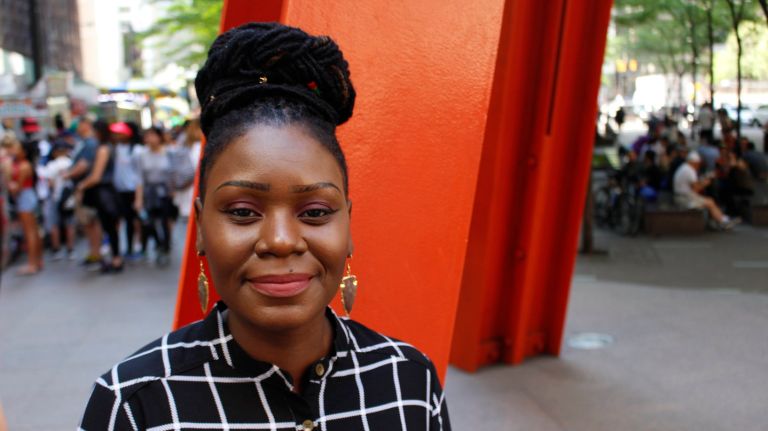
“It’s a very long journey. It’s like traveling to Africa by boat,” she said of her time in the U.S. “But finally, the nightmare is fading off little by little, and I know everything will be all right.”
Walking out of the ceremony with her naturalization certificate, Mbaidedji immediately wondered if she could fast-track the process to get a passport. On her way to the office, she passed several elated citizens posing for photos and celebrating their new, unthreatened legal status.
Brandishing tiny American flags, a widely-smiling Anna Browning posed for her husband with her certificate in hand.
From Moscow, Russia, Browning had come to the U.S. as a student and worked her way up to being an equity research analyst at Bank of America Merrill Lynch. All of the members of her family had dreamed of becoming U.S. citizens, but she was the first to do so, Browning proudly claimed.
“With all the political stuff happening in Russia, I think having freedom of speech and being able to voice my opinion is what makes me most excited about becoming a U.S. citizen,” she said, adding she was looking forward to voting for her representatives and traveling with her U.S. passport.
Increased demand
New York City naturalized 62,752 green card holders in 2017, an 8.5 percent decrease from 2016 and a 7 percent decrease from 2015, as calculated from data provided by the United States Customs and Immigration Services.
Since President Donald Trump took office, however, there has been an uptick in legal, permanent residents trying to naturalize and further solidify their legal status in the U.S., according to Annamaria Santamaria, program associate for pro bono programs at the New York Lawyers for the Public Interest.
NYPLI, in partnership with Catholic Migration Services, began offering free naturalization clinics for those looking to become U.S. citizens in 2015. After Trump’s election, they amped up efforts in response to increased demand. The month Trump was sworn into office — January 2017 — they served 150 people in one clinic, which a spokeswoman for the partnership said was the largest showing to date. In the first year of the Trump administration, their immigration hotline, which will screen potential applicants until July 20, received a record 1,000-plus calls, she added.
Many green card holders remain permanent residents without graduating to citizenship for a variety of reasons, Santamaria said. They might not have a firm grasp on the English language, which is tested during the citizenship process. Another obstacle is the $725 application fee, waivers for which are available via lottery for a select few.
‘Climate of urgency’
The recipient of such a waiver, Tania Edmonds, waited 37 years to try to become a U.S. citizen. A mother of five, Edmonds, 39, came to Brooklyn from Guyana when she was 2 years old as a permanent resident sponsored by her grandparents. National politics has helped influence her decision to naturalize.
“There is some level of irrationality in the process, the way [Trump] speaks of [Immigration and Customs Enforcement] and families being separated,” Edmonds said, adding how a “climate of urgency” led her to apply for citizenship. “Who is to say that they can’t make a law tomorrow that starts targeting those who have been here for a long time and are not citizens? Things are so iffy that it’s better to be safe than sorry.”
Growing up, Edmonds was told that America was a melting pot. In Brooklyn, she felt right at home with a bustling Caribbean community, never isolated or targeted for her Guyanese descent.
While Edmonds and her five children have assimilated into America, she stressed that she will always pay homage to Guyanese culture, whether it’s cooking okra and chickpeas on a regular basis or passing down Caribbean phrases like “Don’t put your hat where you can’t reach it” to her children.
“But at the end of the day, I’m here. I’m not going anywhere,” Edmonds, who expects to hear back about her citizenship application in seven to eight months, said. “This is where I’m raising my children, where I connect with others.
“It’s important to show a level of reverence, a level of commitment and loyalty to a place that is offering me so much. For me, it’s definitely worthwhile.”
Note: The next naturalization clinic will be held on Saturday, July 28 at LaGuardia Community College in Queens. Interested individuals can call the hotline at 212-225-4400 to determine if they are qualified.
